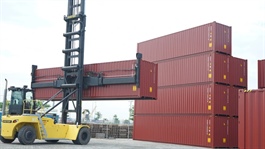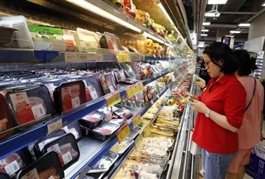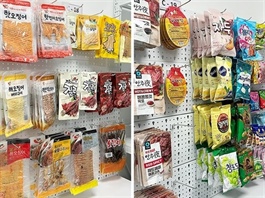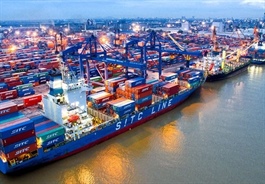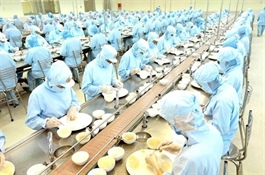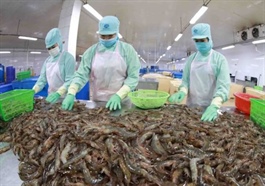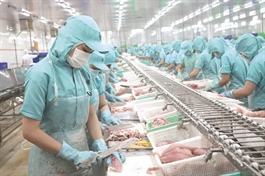US support for approval of direct power purchase agreement in Vietnam
US support for approval of direct power purchase agreement in Vietnam
The US-support mechanism allows consumers to purchase electricity directly from a generation company rather than through a local power utility, facilitating long-term planning and providing price certainty.
The US Mission to Vietnam through the US Agency for International Development (USAID) has provided technical assistance to the Ministry of Industry and Trade (MOIT) since 2017 on the design, development, and approval of the Direct Power Purchase Agreement (DPPA) mechanism.
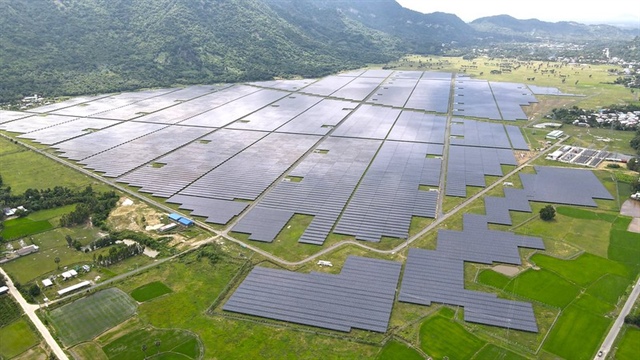
US Ambassador to Vietnam Marc Knapper speaks at the meeting in Hanoi on July 5, announcing the approval of the DPPA mechanism. Photos: USAID |
Years of support led to the approval of the DPPA by the Government of Vietnam on July 3, 2024.
When implemented, the new policy will allow businesses in Vietnam to purchase electricity directly from private renewable energy producers, enabling them to power their operations with 100% renewable energy.
Shortly after the approval, the US Mission to Vietnam applauded the Government of Vietnam for issuing the Decree on the DPPA. “I extend my sincere congratulations to MOIT for their dedication and hard work in bringing this DPPA to fruition,” said US Ambassador to Vietnam Marc Knapper.
“Our Comprehensive Strategic Partnership marks a new era of collaboration between our two nations, and the DPPA is a testament to our deepening ties and shared commitment to sustainable development,” added the Ambassador.
Meanwhile, the USAID said it will continue to partner with MOIT on the DPPA’s implementation. USAID/Vietnam Mission Director Aler Grubbs called the move a “milestone”.
“The DPPA will enable businesses to reduce their carbon footprint while also enabling Vietnam to accelerate its transition to clean energy and advance its net-zero emissions goal by 2050. The US remains Vietnam’s partner as you roll out this important initiative and expand Vietnam’s access to clean and renewable energy,” said Aler Grubbs.
This helps Vietnam attract private sector investment in renewable energy while also meeting the needs of corporate leaders seeking to integrate renewable energy into their operations and meet their corporations’ emissions reduction targets.
The DPPA will enable international and domestic businesses in Vietnam to achieve greater carbon reduction toward their net-zero goals while accelerating the country’s transition to clean energy. The US is partnering with Vietnam to reduce greenhouse gas emissions and build resilience to climate change, supporting a fair and inclusive energy transition.
The US is a committed partner of Vietnam in advancing the country’s transition to a clean, secure, and market-based energy sector, which is in line with our two countries’ shared priorities under the Comprehensive Strategic Partnership.

A solar farm supported by the USAID in An Giang Province, Vietnam. |
USAID engagement in DPPA mechanism in Vietnam
The Direct Power Purchase Agreement (DPPA) or Corporate Power Purchase Agreement (CPPA) is a long-term contract under which a consumer agrees to purchase electricity directly from an energy generating company (GENCO) instead of through the enterprise’s local power utility.
The mechanism has resulted in a number of benefits, including low, upfront capital costs, long-term revenue, and price certainty, increased grid usage and reduced fiscal impact, and decoupling of generation and consumption locations, according to financial advisory Deloitte.
Since 2017, USAID's US$36-million Vietnam Low Emission Energy Program (V-LEEP) has worked with the Government of Vietnam to develop a DPPA pilot program allowing businesses to purchase clean power directly from solar and wind generators. It has also supported the MOIT in developing the National Power Development Plan VIII (PDP8) and worked with government regulators, banks, investors, and private sector developers to facilitate solar investments.
According to the USAID, V-LEEP brings together the public and private sectors by supporting the design and development of the DPPA Program, establishing the Renewable Energy Buyers Working Rroup Vietnam, working with public and private sector stakeholders, and moving forward with gauging market interest and covering other areas to secure successful implementation.
The V-LEEP II (2020-2025) increases the deployment of advanced energy systems through improving enabling policies, laws, and regulations and mobilizing private investment. It improves energy sector performance by upgrading planning and operation practices, and enhances competition in the energy sector by promoting transparent procurement practices and increasing the availability of advanced energy skills, products, and services.
V-LEEP II aims to provide financial support to at least 2,000 MW of renewable energy projects and act as a bridge between the Government of Vietnam and the private sector.
Over the past years, the USAID’s support for the DPPA could be seen through milestones: the 2017 APEC Summit with the release of the DPPA Declaration; June 2019 when V-LEEP convened a formal DPPA Public Consultation; April 2021 when MOIT shared a draft DPPA Pilot Circular; May 2022, when MOIT developed and shared an updated draft DPPA PM Decision that is fully compliant with current legal framework; and on July 3, 2024, when the Government of Vietnam approved the DPPA mechanism.








